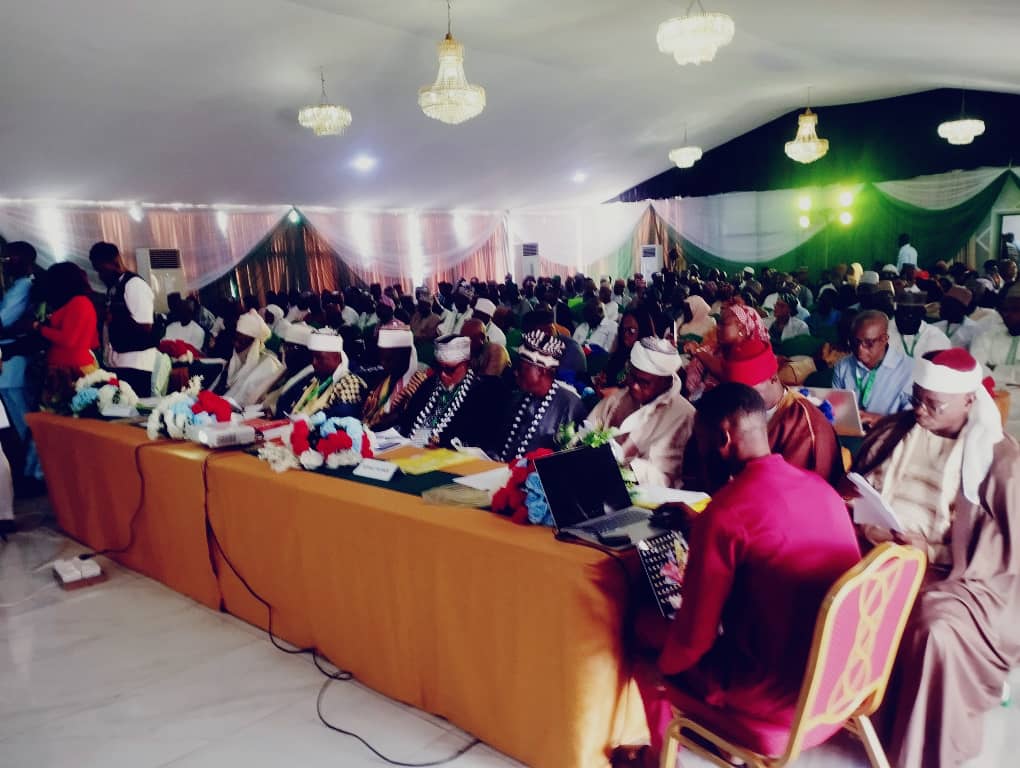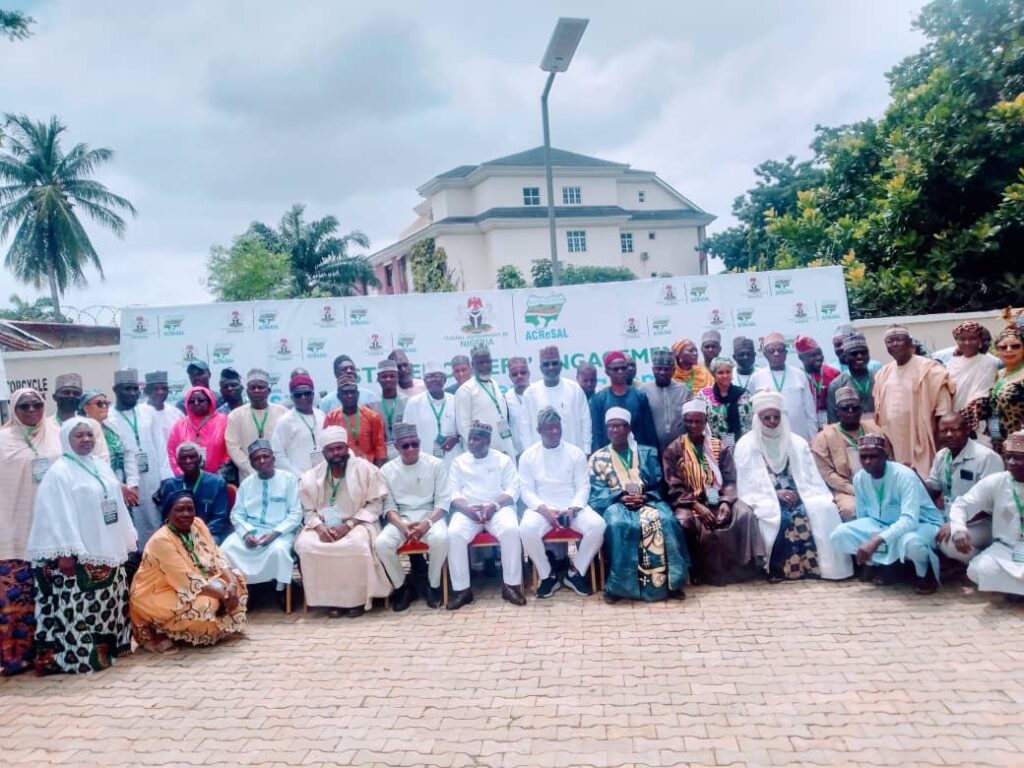A Stakeholders Engagement has commenced in Lokoja, Kogi State capital on the developing eleven strategic catchments in four States under the Agro-Climatic Resilience in Semi-Arid Landscapes Project (ACReSAL).
Governor Ahmed Usman Ododo in a message while declaring the Stakeholders engagement open, said strategic catchment management will ensure harmonization of land use, improve water governance, and empower communities.
Represented by the Commissioner of Environment and Ecological Management, Engr. Joseph Olusegun, the Governor said “The ACReSAL project is far more than an intervention, it is a transformative mission. It seeks to confront, head-on, the interlinked challenges of land degradation, water scarcity, and climate vulnerability in Nigeria’s semi-arid regions.”

He further stated that “Through strategic catchment management, we are working to harmonize land use, improve water governance, and empower communities not just as beneficiaries, but as active custodians of their environment.”
“Catchments are, in many ways, the lifeblood of our ecological systems. They connect upstream and downstream communities, link agriculture with biodiversity, and bridge the gap between policy and practice. This engagement, therefore, is not a ceremonial exercise – it is a call to action. A call to co-create solutions, to share practical knowledge, and to build consensus around a plan that will define the environmental legacy we leave behind.
He applauded the ACReSAL team for their dedication, creativity, and resilience, saying that of Kogi State under the leadership of Barrister Ladi Ahmed Jatto, as State Project Coordinator, has been exceptional.
The Governor while acknowledging the unwavering support of the World Bank, the Federal Ministry of Environment, and other stakeholders for providing technical and financial support, said the partnership reinforces the fact that environmental sustainability is a responsibility of all.
In his remarks, the National Project Coordinator of ACReSAL, Mr. Abdulhamid Umar, represented by Engr. Shettima Adams explained that the Strategic Catchment Management Plans being worked upon are for Sarkin-Powa-Kaduna, Okwa-Mada, Lokoja-Niger, and Aloma-Ebonyi.
Mr. Umar described the catchment management plans as the bedrock of the implementation of the ACReSAL Project which according to him creates the platform and structure for micro catchment management plans.
“Having completed 9 out of the proposed 20 plans, I am proud to say that, as a Project – Agro-Climatic Resilience in Semi-Arid Landscapes (ACReSAL) Project, we have come a long way, and I commend the dedication and resolve demonstrated by our teams at the federal and state levels in driving this project forward.
He further noted that “…a catchment, which could also be called a watershed, is defined as a geographical area drained by a particular water body.
“This geographical area, therefore, includes the living and non-living components of the environment and their interaction based on the support of the water body that drains the area. Considering this definition, you will all understand that the support of a water body to a given geographical area does not respect political boundaries.
According to him, the Stakeholders engagement was organised to provide “a shared vision of the strategic stakeholders for an ideal riparian catchment that will build and forestall peace in the catchments, and take into consideration the opportunities and challenges in the catchments that will form part of the catchment management plan.”
Earlier, Barr. Ladi Jato, Kogi State Project Coordinator of ACReSAL, expressed delight for the choice of Lokoja to host the engagement, describing it as a collective effort towards protecting and preserving the water resources, and ecosystems.
Barr. Jatto maintained that the objective of the Strategic Catchments Management Plans includes; Strengthening knowledge and data, Raising awareness and promoting advocacy on the ecological importance of catchments and the sustainable development, Fostering sustainable and cooperative catchment management through an integrated, multi-sectoral approach.
“As we are aware, one of the critical outputs of “Component A” of the ACRESAL Project is the development of Strategic Catchment Management Plans (SCMP these plans are foundational to all ACRESAL interventions, as they guide the identification of key catchment areas, and the challenges, and also provide a sustainable and integrated framework for restoring degraded landscapes.
She added that Kog State Coordinating office of the project has been guided by delineated micro watersheds while, a consultant to develop 10 micro catchment plans has been engaged.
The meeting is being attended by stakeholders, including representatives from the Federal and State Ministries of Water, Environment, and Agriculture, ACRESAL FPMU team, as well as other relevant MDAs and Associations handling biodiversity conservation, and environmental management, Project Coordinators of 10 States with their stakeholders.
END

